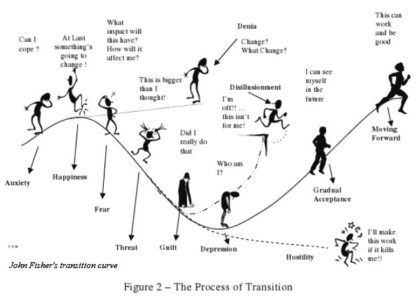Last updated on July 6th, 2022 at 04:24 pm
 Today is a big day for me on the path to mastering my personal finances. I have decided to confront the financial infidelity in my marriage. I don’t mean face it within myself, or safely just write about it in relative anonymity.
Today is a big day for me on the path to mastering my personal finances. I have decided to confront the financial infidelity in my marriage. I don’t mean face it within myself, or safely just write about it in relative anonymity.
I mean face it with my husband.
This weekend.
This has been a really hard post to write. It’s taken me down a winding road, and it’s made me double back three or four times to look at things again and again and try to see what they really are, instead of what I believe or imagine they are.
Many difficult transitions in life proceed along a series of stages – you know, like the famous seven stages of grief. Here’s my version.
The 5 Stages of Financial Fidelity
Stage 1 – The urge to make excuses
My first planned sentences are, “I need you to help me with our finances. I’ve made some really bad decisions and I need your help to take care of the fallout and keep it from getting worse.”
But as soon as I practice those sentences, my impulse is to explain. A client hasn’t paid me for four months. I have some kind of addiction problem when it comes to money, and I’m really essentially powerless to overcome it by myself. I’ve been under so much stress with work and the kids and managing the house that it’s just gotten to be too much.
Those things are all true, but they sound like excuses. I personally hate excuses. They’re defensive, just a way of saying, “I screwed up, but there’s a good reason for it so I shouldn’t be held accountable.”
Excuses are also fear-based. “I know you’re going to hate me for what I’ve done, so let me start right now making a case for why you shouldn’t hate me after all.”
Ick. I don’t want to make excuses.
Stage 2 – The urge to blame
For most of my life, I consider blame destructive. Just ask Remy; she and I have spent weeks designing a business world-view that includes the statement, “Blame leads to blame and is therefore unproductive in any business.”
I really do believe that – for everyone except me. As I landed at Stage 2 I dwelt for a long while on my failures and mistakes, all the things I should have done differently, and all the choices I wish I hadn’t made. I punished myself severely for repeating old patterns without seeing what I was doing.
It was getting to be a regular bloodbath. To get some relief from the beating I was so willingly taking into my own hands, I had to resort to blaming my husband. It didn’t make me feel any better, so I’m not even going to share the ways I came up with to make it his fault.
Stage 3 – The urge to sugar-coat
An aha happened around this point. For every blame I could heap on my own head, there was corresponding blame I could assign to my husband. It dawned on me that perhaps we have both contributed to this situation. And perhaps that means it does not have to end in disaster.
If, by chance, we can find a way not to point an accusing finger at ourselves or each other, then maybe we could instead point at how it is, and how each of us could take appropriate accountability for changing it.
When I allowed myself to think that way, the looming disaster that has been plaguing me did not seem, any longer, like a looming disaster. It seemed more like something we could join forces to change. It seemed like an opportunity for us to deepen our relationship, and to respond to the world from a united front.
In my mind’s eye, I saw us moving from a place of standing on opposite sides pointing the finger at each other (which is what I imagined at Stage 2) to a place of standing shoulder to shoulder, working together for something better.
I liked it at Stage 3. It would have been nice to linger there.
But no.
Stage 4 – The urge to hope instead of act
In fact, the experience of Stage 3 had been like popping an infected pimple. It released the topical poison and eased the immediate pain. I started to think maybe I had made a mountain of a molehill.
Or that maybe I could actually have it turn out the way I dreamed it could be if I first cleaned up all the messes and THEN had the conversation.
Stage 4 only lasted a few seconds. Hope, after all, is not a strategy.
Stage 5 – The urge to act on behalf of my own best interests
Finally, I conclude that I don’t really like the term financial infidelity, because it sounds like the primary injury is cheating on my husband. In truth, the primary injury is cheating on myself, with some really bad fallout accruing to him.
Back there at Stage 4, while feeling momentarily hopeful, I was focused on the benefits of not having this conversation with my husband. I wouldn’t have to admit my mistakes and failures.
I wouldn’t have to upset my husband. I wouldn’t have to risk his anger and the loss of his trust. I wouldn’t have to walk into the fear of losing my marriage.
Yeah. It would be good to avoid all that. But . . . the cost?
I am stressed to the point of physical illness. I can’t eat, I can’t sleep, and I can’t concentrate. I would have to remain that way.
I feel lonely and isolated.
I am carrying the weight of my family’s practical life entirely alone and allowing my husband to feel like everything is handled when it’s not.
I am depriving myself of my true companion.
Every night I lie awake, envious that my partner is comparatively worry-free and light-hearted, while I am obsessively tallying up pennies, paydays, and bills in my head.
The cost is too much.
Wish me luck. This weekend I take a step for myself. I accept the risk that I may lose some things that are vitally important to me because the cost of avoiding those risks is too high. I’m pretty sure it will eventually work out okay, even if I don’t yet know how.
Jayne Speich
Jayne Speich is a small business coach/consultant who writes, thinks, and coaches extensively on customer service, business finance, and ways to thrive in the new economy.

Enjoy this special 8WomenDream Guest Contributor story submitted by new and experienced big dreamers throughout the world, edited and published to capture a dream perspective from different points of view. Do you have a personal dream story to share with 8WomenDream readers? Click here to learn how to submit dream big articles for consideration.
Note: Articles by Guest Post Contributors may contain affiliate links and may be compensated if you make a purchase after clicking on an affiliate link.




